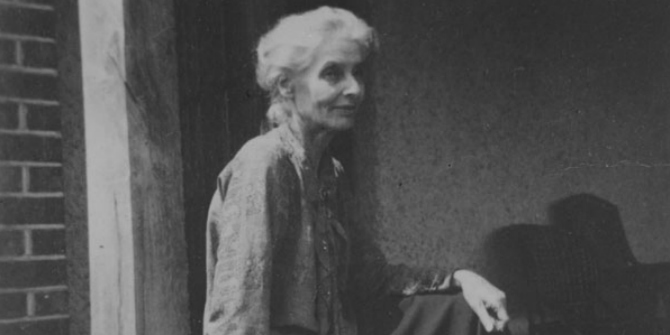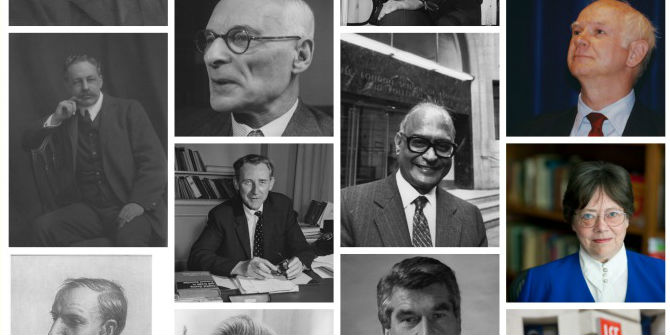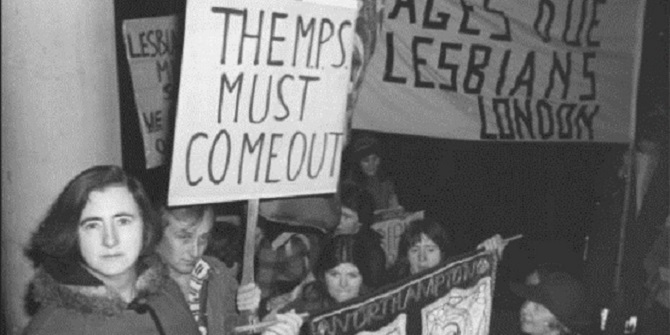Research has always been at the heart of LSE’s teaching and engagement with the world. In this series, we’ve paired up four of our historical figures with four early career academics, reflecting continuity and change across the years. Junius Olivier attended the same school as life-long inspiration Arthur Lewis. Here, he discusses their shared field of development economics and the rewards of teaching. Former LSE archivist Sue Donnelly provides an introduction to Arthur Lewis.
I have been investigating the colonial origins of underdevelopment in the Caribbean. My work focuses on the legacy of colonialism and the role of colonial political and social institutions in shaping economic and social development in post-colonial states.
Beyond my research, I teach classes in Microeconomics, Macroeconomics and Economics in Public Policy. I have been most proud of my achievements in teaching and education here at LSE. In my first year at the Department of Economics I have received awards for excellence in education and teaching from both the department and the Students’ Union. As someone who loves and takes pride in their teaching, I hope to continue to deliver excellent teaching in economics.
Arthur Lewis (1915-1991): argued that “the fundamental cure for poverty is not money but knowledge”
Arthur Lewis arrived in England from St Lucia in 1933 to study for a B Commerce degree at LSE intending to follow a business career. He described his time at LSE as “marvellous intellectual feasts”, and in 1938 received a first class degree. After failing to obtain a Colonial Service post in Trinidad he was awarded a scholarship to study for a PhD and was appointed to a temporary assistant lectureship at LSE in 1938.
Although academic life was successful, Arthur Lewis recalled that he was “subjected to the usual disabilities – refusal of accommodation, denial of jobs for which he had been recommended, generalised discourtesy and the rest.” The decision to appoint him at LSE was unanimous, but the Director, Alexander Carr-Saunders, felt the need to explain the appointment to the School Governors and restrict his teaching to groups of students. Despite this, during LSE’s evacuation to Cambridge, as one of the few teachers not called up for civil or military service, Lewis undertook a heavy teaching load – indeed his colleague Friedrich Hayek called him “one of our best teachers”.
Arthur Lewis understood that development is about structural transformation by creating new economic opportunities. He developed the core analytical approach and played a role in bringing these ideas into policy thinking, establishing a tradition that LSE continues to this day.
In 1942, Arthur Lewis published Some Aspects of the Flow of Capital into the British Colonies and was appointed Secretary to the Colonial Economic Advisory Committee where he attempted, not always successfully, to set economic research into the context of the wider needs of the British colonies. In 1948, he moved to Manchester University as a full professor and later became the first Vice Chancellor of the University of the West Indies.
In 1979, he was awarded the Nobel Prize for Economics for “pioneering research into economic development research with particular consideration of the problems of developing countries”, most fully described in Economic Development with Unlimited Supplies of Labour (1954) and The Theory of Economic Growth (1955) arguing that economic development required consideration of political, social and cultural influences as well economic theory.
This article marks LSE’s 125th anniversary and originally appeared on Research for the World, LSE’s online social science magazine.






I suspect there is a typo in relation to Arthur Lewis’ award of the Nobel prize; it could not have been 1929.
Incidentally I followed one of the lecture courses he gave on “The Economic Lessons of the 1930s” when a student for the BSc(Econ) in either 1946 or 1947. He was a good lecturer and I don’t remember any reaction to the fact that he was black. By a quirk of my own professional life, I became an external examiner in education for the University of the West Indies in the late 1980s early 1990, where he had been vice-chancellor.
Thank you very much for your comment and for spotting that error, it was awarded in 1979 and I’ve updated the post.